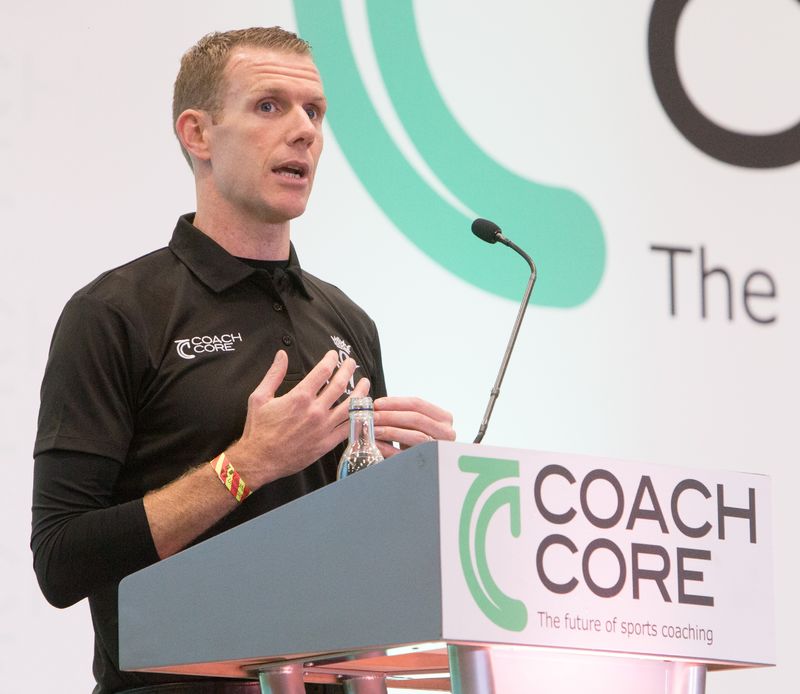CEO Response to the Government Levelling Up White Paper
Gary Laybourne, CEO of Coach Core takes a look at the Government's Levelling Up plans

For many of my peers in the sports for development sector, and for many more people across the UK, we have waited for over two years to see the granular detail of the greatly anticipated Levelling Up white paper. Whilst it presents focal points and outlaid plans that I applaud and look forward to reading more about, my overwhelming response is that despite the time passed to build this plan, we are still missing much of that detail, and that the funding and focus priorities still give me great concern.
Let’s start with the positives
The key things that jumped out to me were:
- This is now something that Government intends to enshrine in law, and therefore hold people and organisations accountable to. This would be a significant step in ensuring public confidence that these pledges and outcomes will be met.
- That there is a cross department pledge that unifies them all working towards the 12 missions. I feel we can all agree that this has too often been a challenge for those of us attempting to work between departments.
- The broad range of ‘missions’ this paper seeks to solve is encouraging, particularly for those that live in areas that currently experience greater challenges to prosperity.
- It is also very clear that Government wishes to shift the balance of power to more regional and local leadership policies so that change can occur more impactfully, rather than simply dictated centrally by Whitehall.
From Coach Core’s point of view, it is obviously encouraging to see nods to grassroots sports, access for young people, and the focus on building more places for physical activity to take place. However, I am afraid in my opinion, there are more questions than solutions with what has been presented so far…
Questions
- The pledge of “200,000 more people successfully completing high-quality skills training annually, driven by 80,000 more people completing courses in the lowest skilled areas” across the UK is once again an encouraging statement. However, as we have seen with Kickstart; these figures mean little if there is not the strategy and ‘doers’ in place to bring this to fruition; has the government learnt from these recent experiences?
- There will be a National Youth Guarantee that states by 2025, “every young person will have access to regular out of school activities, adventures away from home and opportunities to volunteer”. Given this sits so prominently in the sport for development sector, I am sure many of my peers will have read this and asked ‘how?’ given the sheer number of organisations and funding that this promise would require.
- It is laudable they mention enhancing job prospects and skills attainment, but if cost of living continues to rise, this will still be the biggest barrier to true social mobility. If people can’t afford to live, they can’t afford to travel, and therefore may be priced out of accessing new routes to education or employment opportunities.
- This paper seems to focus largely on places and not people. For example, London and the South East is held up as an area to ‘level up to’, but we know firsthand the challenges many young people, and those that face disadvantage, continue to experience in large pockets across the capital and the South East region. It could be read that the focus for Government will now largely shift to other geographic locations, leaving them potentially further behind.
- I was encouraged to see funding made available for “charities, social enterprises and those working with vulnerable individuals”. But as many will appreciate, this is an extremely broad group of people and organisations, and my sense is that yet again our ability to provide the insight, expertise and deliverable outcomes to truly affect local change is not as central to the plans of Levelling Up as many of us feel it should be.
- It was great to see the mention of grassroots football gaining further investment of £230m, particularly with the nod to the development of better facilities, and hopefully safer, more inclusive spaces. But, whilst I appreciate this is the nation’s game, football also already attracts significant funding, so I am sure there will be many other sporting leaders rightly asking if they are now to be overlooked with this statement.
Conclusion
Many of us have been not only excited for the release of the Levelling Up paper, but positively putting our hands up with an offer to play our collective part. We feel that apprenticeships and organisations like Coach Core are ideally placed to support the Government achieve their ambitions, by supporting young people who have experienced barriers, discrimination, and lack of opportunities. By 2024 we are committed to:
- Helping 1,000 young people who come from disadvantage access training and employment
- Working with 150 employers to create local job opportunities
- Engaging with marginalised groups to ensure they have access to these opportunities
- Helping generate 150,000 community coaching sessions
The agenda of the Government’s paper is clearly huge, and wide ranging, and so I appreciate that this first release of information will not capture many of the questions now being asked, including my own. My concern is that organisations like Coach Core – those making a difference ‘on the ground’ – need to be a part of the consultation process to ensure meaningful, impactful change.

Gary Laybourne
Chief Executive Officer, Coach Core Foundation
